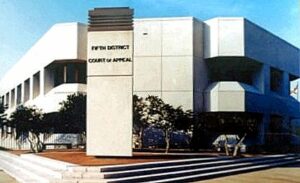BLOG
A recent ruling by the Fifth District Court of Appeal demonstrates the potential ramifications of ambiguities in the mediation and arbitration provisions of construction contracts. The ruling found the lower court correctly determined that the parties had a valid agreement to arbitrate certain claims because the contract clearly required arbitration for claims arising before final payment was due. However, it was silent regarding the procedure for resolving claims arising after the final payment became due, so the case was remanded back to the lower court for a determination as to whether the claims arose before or after final payment was due.
In Royal Palms Senior Apartments Limited Partnership v. Construction Enterprises Inc. et al., Royal Palms appealed the nonfinal order entered in favor of Construction Enterprises Inc. staying the developer’s lawsuit pending mediation and arbitration based on its assertion that the trial court erred in finding a valid arbitration agreement existed and its claim was subject to arbitration.
 The Fifth DCA affirmed lower court’s finding that the parties had a valid agreement to arbitrate certain claims. However, because it is unclear whether Royal Palms’ claim was one subject to arbitration, it remanded the case for a determination of that issue.
The Fifth DCA affirmed lower court’s finding that the parties had a valid agreement to arbitrate certain claims. However, because it is unclear whether Royal Palms’ claim was one subject to arbitration, it remanded the case for a determination of that issue.
The parties entered into a contract in 2006 for CEI to build the Royal Palms Senior Apartments. The agreement was comprised of the “AIA Document A201-1997 General Conditions of the Contract for Construction” (“General Conditions”) and a supplementary document (“Supplementary Conditions”), which modified and deleted portions of the General Conditions and controlled if the two documents conflicted.
In 2017, Royal Palms filed a complaint against CEI alleging negligence, vicarious liability, breach of contract, and breach of applicable building codes. After a hearing on CEI’s motion to compel dispute resolution, the trial court determined that the mediation and arbitration provisions of the General Conditions were binding and enforceable. It ordered mediation followed by arbitration if mediation was unsuccessful.
The developer’s subsequent appeal hinged on the Seifert Test, which holds: “Under both federal statutory provisions and Florida’s arbitration code, there are three elements for courts to consider in ruling on a motion to compel arbitration of a given dispute: (1) whether a valid written agreement to arbitrate exists; (2) whether an arbitrable issue exists; and (3) whether the right to arbitration was waived,” (citation omitted).
The appellate panel found that Royal Palms’ arguments implicated only the first two prongs of the Seifert test. Because a party may not be forced to submit a dispute to arbitration if it did not intend and agree to arbitrate, the court found that ambiguities regarding the scope of an arbitration clause should be resolved in favor of arbitration, but the existence of an enforceable arbitration clause should not.
“While the Supplemental Conditions eliminated some of the General Conditions related to arbitration, multiple provisions contemplating arbitration remained,” stated the panel. “Pursuant to the General Conditions as modified by the Supplementary Conditions, the exclusive procedure for resolving claims arising before final payment is due is to submit such claims to the Architect for a final, binding decision. If the parties are not satisfied with the Architect’s decision, they may mediate the claim. If mediation is unsuccessful, the only remaining option is to arbitrate the claim. Thus, because the General Conditions as modified by the Supplementary Conditions require arbitration of claims arising before final payment is due if the parties are unsatisfied with the Architect’s decision and mediation is unsuccessful, we find that the trial court did not err in determining that the parties had a valid agreement to arbitrate.”
However, the court also found that the contract is silent regarding the procedure for resolving claims arising after final payment is due. The provisions comprising the “exclusive procedures” for resolving such claims reference litigation, mediation and arbitration, and they are not required to be submitted to the architect.
“The record is less clear regarding the second prong of the Seifert test — whether Royal Palms’ claim was an arbitrable issue. The trial court’s order mandating mediation followed by arbitration did not include a determination of whether Royal Palms’ claim arose before or after final payment was due. Thus, it is unclear whether Royal Palms was required to arbitrate its claim,” the unanimous opinion concludes.
In remanding the case for a determination of that matter, the ruling illustrates the ramifications of ambiguities in construction contracts involving mandatory mediation and arbitration.
Ambiguities in the arbitration provisions of these contracts will typically fall in favor of arbitration, which may not be what the parties to the contract intended.
Arbitration clauses are often included in today’s construction contracts, but they are often amended by the attorneys for the parties. General contractors and property owners should work closely with highly qualified and experienced construction law attorneys to carefully consider and finalize all references to mediation and arbitration in their contracts. In addition, when defending a motion to compel arbitration in court, counsel should always demonstrate how the order would meet every aspect of the Seifert test to avoid a potential appeal.

